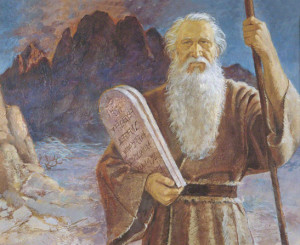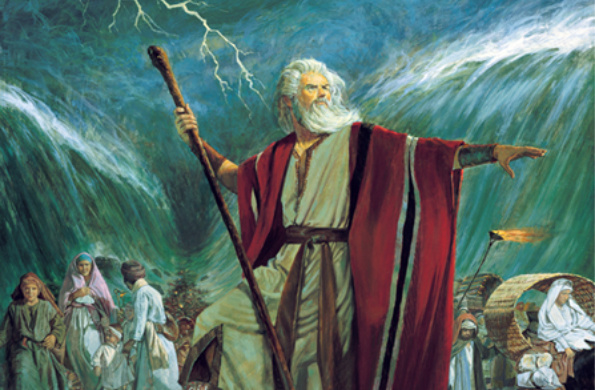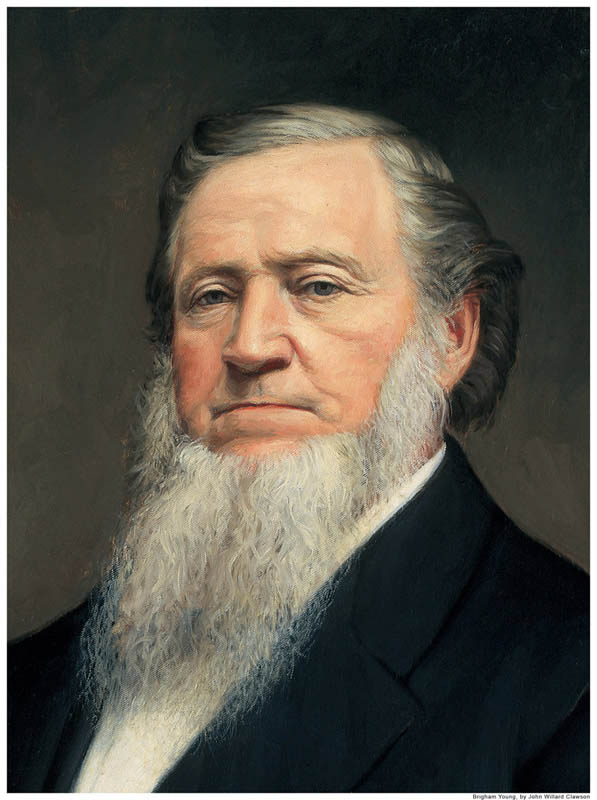I love to read stories of prophets called of God and to watch them overcome their natural inadequacies and grow into men whom the Lord can truly work through. One of these prophets is Moses, and part of his story can be found in the book of Exodus.
 Raised by the daughter of Pharaoh, he likely could have claimed the throne of Egypt if he had desired it. Instead, he identified with his own people, the house of Israel. And when the time was right and the Lord’s prophet was prepared (whether this prophet realized he was prepared or not), Moses was called to deliver the children of Israel from bondage in Egypt.
Raised by the daughter of Pharaoh, he likely could have claimed the throne of Egypt if he had desired it. Instead, he identified with his own people, the house of Israel. And when the time was right and the Lord’s prophet was prepared (whether this prophet realized he was prepared or not), Moses was called to deliver the children of Israel from bondage in Egypt.
First, the Lord tells Moses that He does know of the trials that Israel is experiencing:
“I have surely seen the affliction of my people which are in Egypt, and have heard their cry by reason of their taskmasters; for I know their sorrows; And I am come down to deliver them out of the hand of the Egyptians.” (Exodus 3:7-8)
Sometimes it is easy for us to think that we suffer our trials alone. But as the Lord tells us here, He is mindful of us and does know of our sorrows, and He is prepared to deliver us. But notice here what His solution is:
“Come now therefore, and I will send thee unto Pharaoh, that thou mayest bring forth my people the children of Israel out of Egypt.” (Exodus 3:10)
The Lord was going to deliver Israel, but His plan was not to come down and talk to Pharaoh Himself. Instead, His plan was to work through His prophet. Throughout the ages, we have seen this pattern repeated.
President Spencer W. Kimball, the twelfth prophet of The Church of Jesus Christ of Latter-day Saints, once said: “God does notice us, and He watches over us. But it is usually through another person that he meets our needs.” This is the Lord’s pattern of doing things. Among the other things this accomplishes, it requires us to stretch and grow so that we may meet the needs of others around us. Sometimes this may seem like a burden, but it is truly a great opportunity for us as we rise to meet the challenge.
And suddenly Moses felt the weight of this responsibility given to him:
“Who am I, that I should go unto Pharaoh, and that I should bring forth the children of Israel out of Egypt?” (Exodus 3:11)
Just like many of us do when we are given new responsibilities, Moses felt dreadfully inadequate. He sincerely wondered how he could even do this great thing the Lord had asked him to do. Perhaps he wondered if someone else could do it better than he could.
Sometimes we think of our prophets as something like superheroes who never worry about anything, come by their abilities naturally, and always know exactly what to do. But the story of Moses shows us that this is not the case. Moses was terribly concerned about his abilities to carry out this assignment. The Lord’s next words to him must have been a comfort to him:
“Certainly I will be with thee.” (Exodus 3:12)
 The Lord went on to teach Moses some miracles that he could perform to testify to the people of Israel that his call came from God. And he again reassured him that He would be with him:
The Lord went on to teach Moses some miracles that he could perform to testify to the people of Israel that his call came from God. And he again reassured him that He would be with him:
“I will be with thy mouth, and teach thee what thou shalt say.” (Exodus 4:12).
We have to remember that this is the Lord’s work that we’re doing. He wants this work to succeed, and He wants us to succeed at it. So we don’t need to be afraid in the face of our own inadequacies as we are doing the work of the Lord, because He will be there to help us. Ether 12:27 in the Book of Mormon tells us:
“And if men come unto me I will show unto them their weakness. I give unto men weakness that they may be humble; and my grace is sufficient for all men that humble themselves before me, and have faith in me, then will I make weak things become strong unto them.”
Our weaknesses can be made strengths as we turn them over to the Lord and as we truly seek to do His work.
This post was originally published in November 2007. Minor changes have been made.






